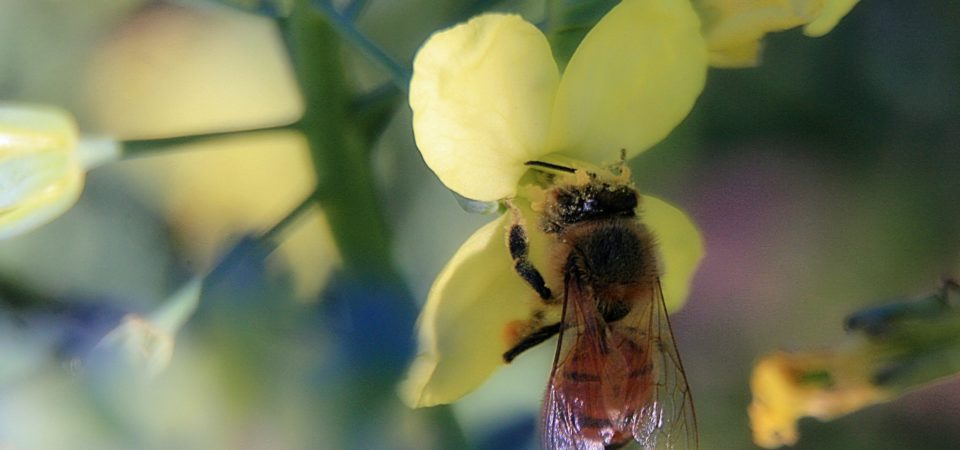Gioietta Kuo presents the devastating reduction of bee populations around the world, considering the implications and drivers of the declines, and proposing options for people to take action.
Abstract: Bees are not ordinary wildlife. They have a special relationship with human society for they are vital to our current and future food supply. Einstein once said: “If the bee disappeared off the surface of the globe then man would only have four years of life left. No more bees, no more pollination, no more plants, no more animals, no more man.”1
For millions of years bees have evolved to perform an essential role in pollinating flowers and food crops on which animals and humans depend. For 90% of 100 major crops of world’s food supply, 71% are bee pollinated. The bee pollination in the U.S. is estimated at $16 billion2.
Tragically, bees today are dying at an unprecedented rate. This does not augur well for the present and future supply of food for our planet— a problem that deserves to be much better known and discussed among the most serious facing the world—an impending crisis that demands urgent mitigation. In the winter of 2012, 30% bees died in US; in Canada 29% ; and in Europe, 20%2. In China, farmers have resorted to human pollination3,4.
Our intensive agriculture, driven by inextricable global overpopulation explosion, with wide use of toxic insecticides like neonicotinoids5 is the main reason for bees’ decline. We list threats bees face and how citizens at all levels, particularly futurists— can directly help preserve bees and save humanity.
We look at our future with diminishing bee population and propose viable solutions.
Read the full article through the link above.
Gioietta Kuo has MA at Cambridge, PhD in nuclear physics, Atlas Fellow at St Hilda’s College Oxford and many years research at Princeton. She has written many environmental articles for World Future Review, and in Chinese – People’s Daily, World Environment, Magazine for the Chinese Ministry of Environmental Protection. She has published more than 100 articles in American and European professional journals, She can be reached at: koupet@comcast.net
The views and opinions expressed through the MAHB Website are those of the contributing authors and do not necessarily reflect an official position of the MAHB. The MAHB aims to share a range of perspectives and welcomes the discussions that they prompt.
